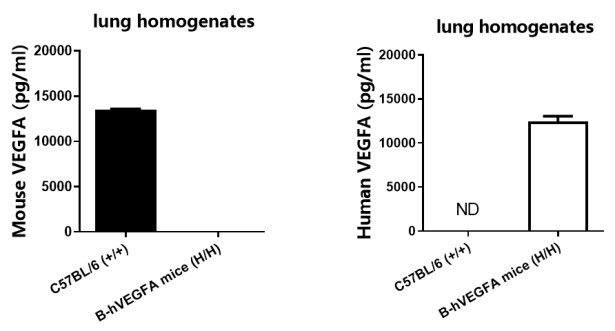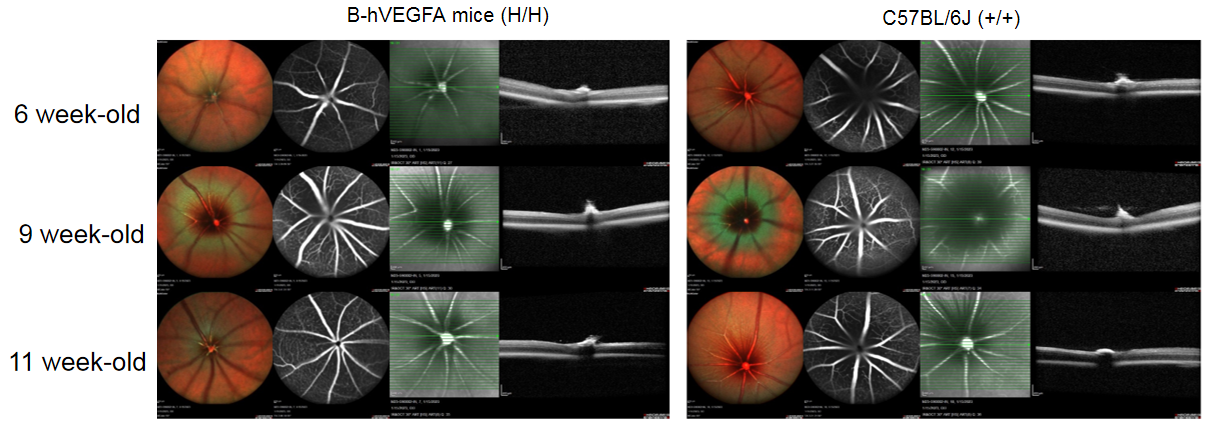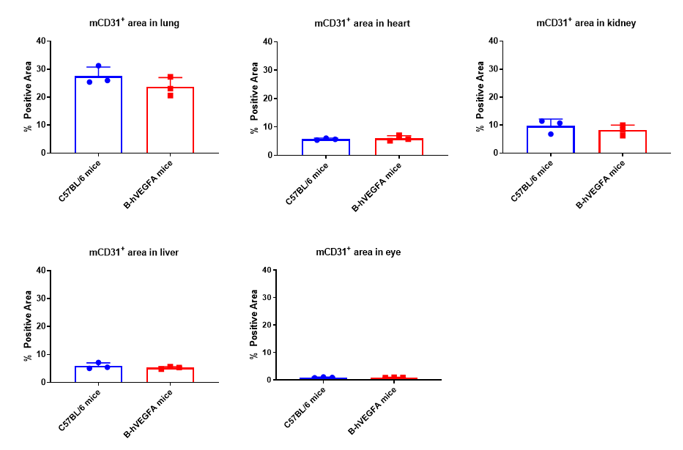B-hVEGFA mice
| Strain Name |
C57BL/6-Vegfatm1(VEGFA)Bcgen/Bcgen |
Common Name | B-hVEGFA mice |
| Background | C57BL/6 | Catalog number | 110822 |
|
Related Genes |
VEGFA (MVCD1, VEGF, VPF) |
||
Protein expression analysis

Strain specific VEGFA expression analysis in homozygous B-hVEGFA mice by ELISA. Mouse lung homogenates was collected from wild-type mice (+/+) and B-hVEGFA mice (H/H), and analyzed by ELISA with species-specific VEGFA kit. Mouse VEGFA was detectable in wild-type mice. Human VEGFA was exclusively detectable in B-hVEGFA mice but not in wild-type mice.
Fundus photographs of B-hVEGFA mice

Fundus photographs of B-hVEGFA mice. Fundus images shows that the fundus morphology of B-hVEGFA mice has no significant change compared with wild-type mice(male, n=3).

We investigated by immunohistochemistry the expression of mCD31 in the heart, liver, lung, kidney and eye of C57BL/6 mice and B-hVEGFA mice (female, 8 week-old, n=3). The results showed that there was no significant difference in the proportion of mCD31+ between C57BL/6 mice and B-hVEGFA mice in heart, liver, lung, kidney, eye. It is suggested that VEGFA humanized has no effect on angiogenesis.
In vivo efficacy of anti-human VEGFA antibody

Antitumor activity of anti-human VEGFA antibody in B-hVEGFA mice. (A) Anti-human VEGFA antibody inhibited B-hVEGFA MC38 tumor growth in B-hVEGFA mice. Murine colon cancer B-hVEGFA MC38 cells were subcutaneously implanted into homozygous B-hVEGFA mice (female, 6-7-week-old, n=6). Mice were grouped when tumor volume reached approximately 100 mm3, at which time they were treated with anti-human VEGFA antibody bevacizumab and schedules indicated in panel A. (B) Body weight changes during treatment. (C) Proportion of CD31+ cell area of total area analyzed in tumor tissue. As shown in panel A, anti-human VEGFA antibody were efficacious in controlling tumor growth in B-hVEGFA mice. As shown in panel C, anti-human VEGFA antibody bevacizumab inhibits vascular endothelial cell proliferation, demonstrating that the B-hVEGFA mice provide a powerful preclinical model for in vivo evaluation of anti-human VEGFA antibody. Values are expressed as mean ± SEM.









